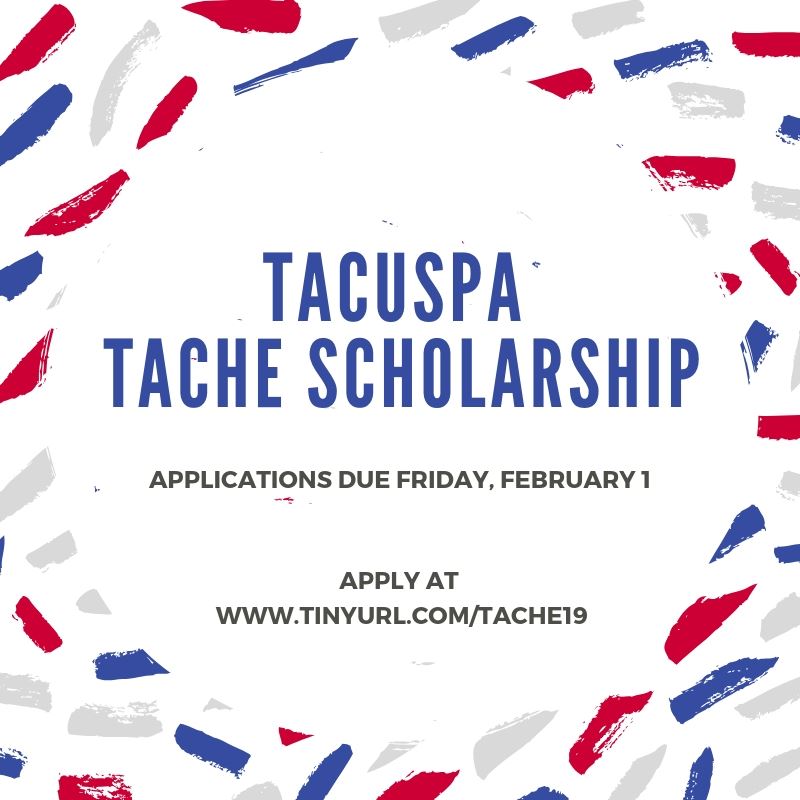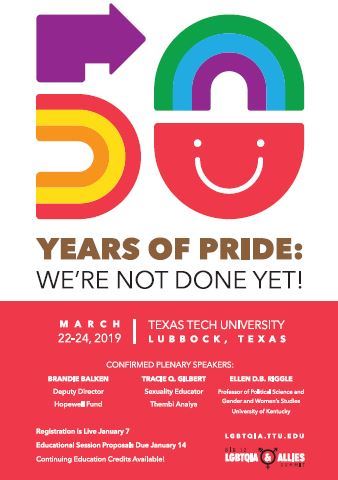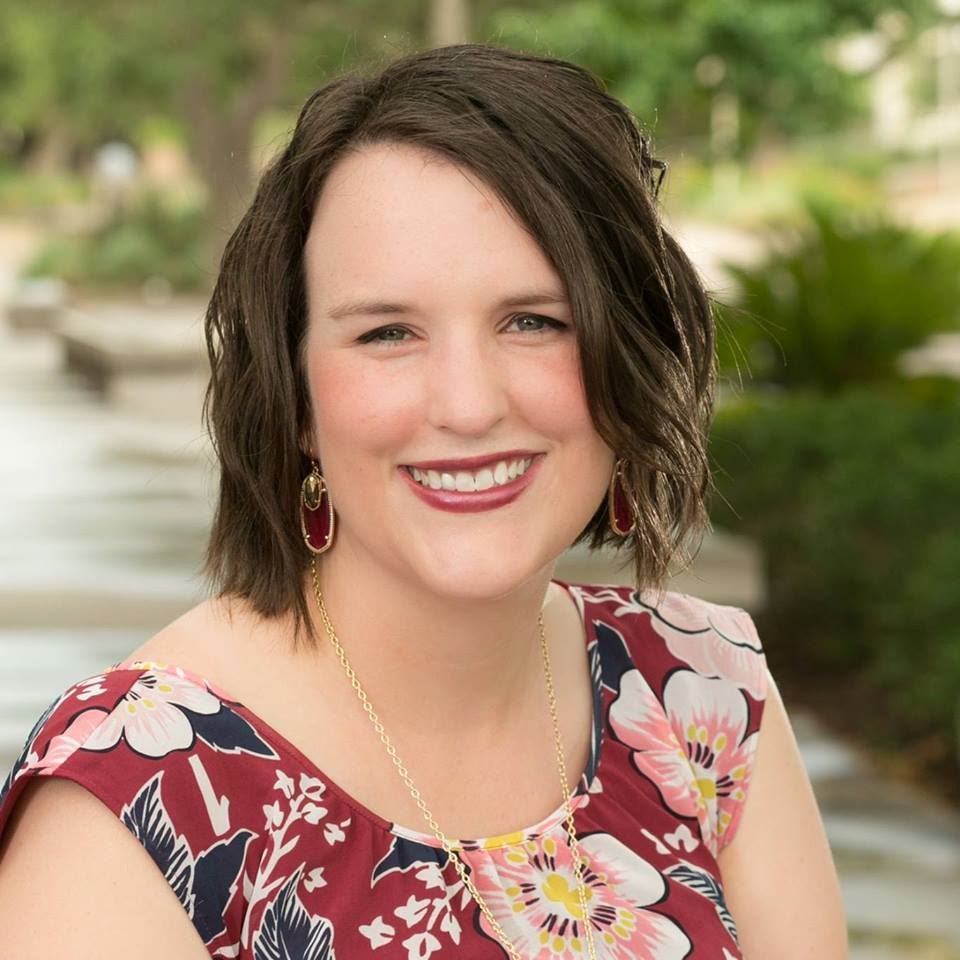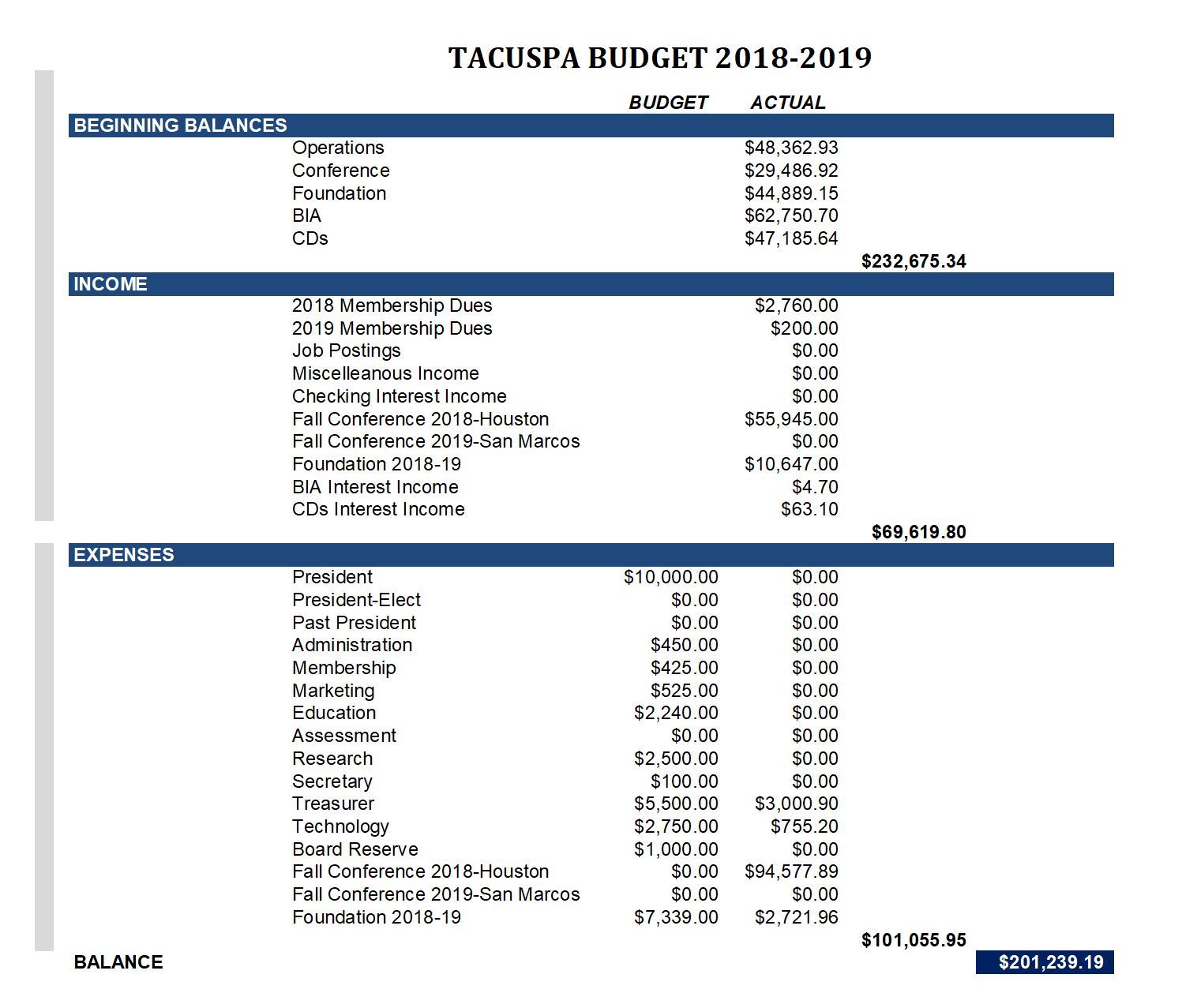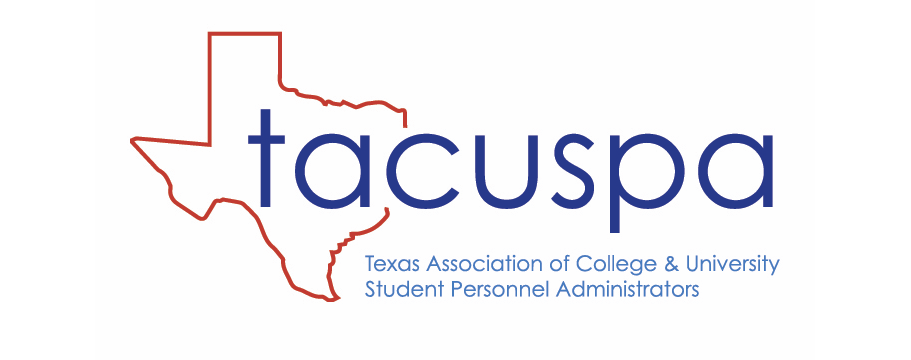
|
January 2019
Hello, TACUSPA friends and colleagues, I hope this newsletter finds you enjoying the start of the spring semester. I don’t know about you, but the spring seems to fly by and before we know it we’ll be celebrating our students at endless award ceremonies, celebrating our graduating students at commencement, and quickly flipping the switch to summer orientation and preparation for fall 2019. As I have embarked upon the first few months in my role as President, I have been reflecting on my experience with TACUSPA. What can we do to help the association meet its goals? What can we do to help our membership thrive? For me, the answer to all of these things is in the relationships I have made through my involvement in TACUSPA. There are countless colleagues across the state I would have never known or met without becoming involved in TACUSPA. As our new membership year is underway, I hope you will renew your membership but will also encourage a colleague (or maybe two or three!) to join TACUSPA. It’s an excellent place to connect with colleagues across the state of Texas. I hope you will consider sharing your love for TACUSPA with others. I also hope you are planning to join us for the 2019 TACUSPA Conference. This year’s conference is October 20-22 at the Embassy Suites in San Marcos, Texas. Our conference theme is focused around Marketable Skills with hopes of sharing perspectives and insights as we are all striving to ensure our students are prepared for their professional careers after college. And I hear the shopping in San Marcos is on point so make plans to come early or stay late. Best of luck with your semester and I look forward to a great year. Sincerely, Molly Albart |
Texas Association of Chicanos in Higher Education (TACHE) Annual Conference Scholarship Opportunity The Texas Association of College and University Student Personnel Administrators (TACUSPA), serves as a sponsor to the Texas Association of Chicanos in Higher Education (TACHE) annual conference. As a sponsor TACUSPA has received one (1) paid registration for this year’s TACHE conference, and we are seeking applications to award said registration. If you are interested in being considered as the recipient please fill out the application which can be found at this link, APPLICATION FORM . This year’s TACHE conference will be held in Austin, Texas, February 17-20, 2019. The conference theme this year is “Pursuing the Dream; People, Purpose and Passion.” For more information on the conference please visit http://www.tache.org/conference. Please note: This opportunity will cover the conference registration fees. Transportation, lodging, and meals not provided during the conference are the responsibility of the recipient. The application deadline is Friday, February 1, 2019. The recipient will be notified of their selection by Monday, February 5, 2019. For more information about the scholarship application or selection process, please contact: Staphany López-Coronado Email: sclopez@smu.edu TACHE - https://goo.gl/forms/ffeinjPYNaJlSLvk2
Texas Tech University is proud to host its second-annual Big 12 LGBTQIA & Allies Summit, March 22-24, 2019. The Summit brings together college students, faculty, staff, and community members who are committed to inclusion, access, and equity within higher education and beyond. The Summit this year recognizes the 50-years since Stonewall, the progress made and the work that continues. | TACUSPA Foundation Texas Higher Education Law Conference Scholarship Opportunity The Texas Association of College and University Student Personnel Administrators (TACUSPA) Foundation is sponsoring four (4) scholarships for graduate students or new professionals to attend the 23rd Annual Texas Higher Education Law Conference on March 25-26, 2019 at the University of North Texas in Denton, TX. The scholarship application deadline is Friday, March 1, 2019 by 5 PM.As the premier conference on higher education law in Texas, the Texas Higher Education Law Conference provides college and university professional in the public and private sector, and attorneys who advise them the most current information on important developments in such areas as student legal issues, first amendment rights, technology dangers, FERPA and free speech areas to name a few. For more information about the Texas Higher Education Law Conference, including registration and hotel information, please visit http://www.coe.unt.edu/HElawconference. Scholarship Eligibility: 1. Must be a member of TACUSPA. 2. Must be a full-time, degree-seeking graduate student (master's or doctoral) pursuing a career in higher education, student affairs, counseling, or related field or a new professional with less than three years in the field of higher education. 3. Must be endorsed by a faculty member in the program where the student is currently enrolled or by a professional member of TACUSPA (name of reference required on application). Please note: This scholarship will cover conference registration fees. Transportation, lodging, and meals not provided during the conference are the responsibility of the recipient. To apply for the scholarship, please visit the APPLICATION LINK . The scholarship application deadline is Friday, March 1, 2019 by 5 PM. Recipients will be notified of their selection by Friday, March 8, 2019. For more information about the scholarship application or selection process, please contact: Staphany López-Coronado Email: sclopez@smu.edu. UNT Law Conference |
Featured Member: Kalyn Cavazos
Kalyn Cavazos, Senior Student Conduct Investigator, Texas A&M University Kalyn is the lead student conduct investigator in the Offices of the Dean of Student Life at Texas A&M University. She is originally from New Braunfels, TX and has worked in student affairs since 2011. Kalyn is a two-time graduate of Sam Houston State University where she received her B.A. in Criminal Justice and M.A. in Higher Education Administration. Kalyn first became a member of TACUSPA back in 2012 as a graduate student. She served on the 2016 Annual Conference Planning Committee, the marketing & technology committee, and was named a Thomas Moorman Fellow in 2016. Prior to working at Texas A&M University, Kalyn served in various capacities including an Academic Advising Specialist in the College of Criminal Justice and the Parent Relations & Special Programs Coordinator in the Dean of Students Office at Sam Houston State University in Huntsville, TX. As a first-generation college student, I recognize the importance of mentors and people that aided in my development and growth as a student during my undergraduate years. Being able to “pay it forward” and be a resource to college students is my calling – I truly love what I do! I know that I wouldn’t be where I am today without some of those individuals and I enjoy being able to have a place during students’ developmental journey while in college. Students are my first and upmost priority; I take their learning seriously and strive to give them a safe, compassionate learning environment that allows them the opportunity to challenge themselves and to grow as individuals. I believe that some of the best opportunities to evolve as an individual occurs outside of your comfort zone and I am the sounding board/coach to help my students through those times. I could not be the best version of myself or an adequate model for my students without professional development. TACUSPA has offered a variety of opportunities and leadership experiences for me to thrive as a professional! I have been able to cultivate long-lasting friendships with colleagues over my years in the organization, expand my knowledge of the field through annual conference/webinars, and I enjoy being able to connect with professionals in my home state. Outside of TACUSPA, Kalyn has been very involved in NASPA Region III through the Summer Symposium Planning Committee where she coordinated marketing, technology, publications, and programs over the past three years and most recently served as the regional representative in the newly-formed Student Government knowledge community within NASPA. She is excited for the collaboration of Region II and Region III in hosting a combined conference this summer in Washington D.C. – be on the lookout for more information! Kalyn is looking forward to pre-lims and completing her last semester of coursework in her doctoral program in Educational Administration at Texas A&M University! Whoop! J |
TACUSPA Foundation Updates
Thanks to all who supported TACUSPA through a donation to the TACUSPA Foundation! This fiscal year to date, we have raised $10,036. Support of graduate student scholarships and the Thomas Moorman Fellowship program is not possible without your contributions. Remember, you can still donate, or add to your 2018-2019 contribution at http://tacuspa.net/Donation_Sponsorships. All donations are tax deductible.
The TACUSPA Foundation also encourages you to show your support for a mentor or colleague who has had a positive impact on you professionally and/or personally. These special contributions will be highlighted in our correspondence with the membership. Show someone in the profession how much they have meant to you. Contribute in their name today.
$5,000+ Lifetime Contributions: Thomas Moorman
$1,000+ Lifetime Contributions: Don Albrecht Darlene Biggers Amanda Drum Alicia Huppe John Kaulfus Daniel Maxwell Lisa McDougle Keri Rogers Joanne Smith Deidra Stephens Richard Walker Elizabeth With
| $500+ Lifetime Contributions: Special thanks to our Century Club members: Gene Fitch John Kaulfus Daniel Maxwell Thomas Moorman Joanne Smith Richard Walker
Also, thanks to those who have made the Century Pledge ($1000 by 2025): Don Albrecht Patsy Collins Amanda Drum Richard Drum Rebecca Gadson Brandon Griggs Jan Hillman Alicia Huppe Keith Lamb Michelle Lopez Elizabeth Massengale Lisa McDougle Jan McKinney Iliana Melendez Wanda Mercer Lisa Nagy Gage Paine Matthew Park Frank Parker Lisa Perez Terisa Riley Keri Rogers Teresa Simpson Deidra Stephens Steve Westbrook Elizabeth With |
Supervisors, Mind Your Mindsets Abstract This paper discusses Dweck’s (2006) concepts of growth mindset and fixed mindset as they relate to supervision. Following a brief anecdote, Dweck’s model is described, then readers are encouraged to legitimize the mindsets, become attune to them, and adopt a growth mindset. Supervisors are offered suggestions for practice: praise the process, reward risk-taking, support slip-ups, and let feedback flow. It is argued that a growth mindset leads to gains in supervisors’ and subordinates’ development. Supervisors, Mind Your MindsetsA few years ago, I considered asking one of my resident assistants (RA) to step down from her student leadership role. She had made several poor, unprofessional choices. “This RA doesn’t ‘get it,’” I thought. “She doesn’t have the “smarts” for the job. She’s a bad RA.” However, after some reflection, I realized this RA’s poor performance was partially my fault. I had not provided her sufficient training and support. Worse, I had fallen prey to a common tendency: viewing my subordinate’s abilities with a fixed mindset. The ProblemPeople with a fixed mindset believe that basic human abilities or intelligence are static traits (Dweck, 2006); talent is considered endowed, not developed. As supervisors, this haves-and-have-nots belief system can have detrimental effects on our professional performance (Dweck & Elliot, 1983)—and those we supervise. In her book on mindset, Carol Dweck (2006) synthesized nearly 30 years of research on motivation, personality, and talent development. Initially, Dweck investigated how people responded to setbacks. She found that operating within a fixed mindset often produced negative affect and performance (Dweck, 1975). Other effects of a fixed mindset were misguided motivations and misplaced goals (Grant & Dweck, 2003), diminished risk-taking and an aversion to experimentation (Dweck & Leggett, 1988), defensive self-protection, and decreased productivity (Dweck, 2009). Perhaps more harmful, some of Dweck’s participants internalized their setback (e.g. thinking “I am a failure” versus “I failed”), which crippled their confidence and performance. In my earlier example, I had transmuted an RA’s imperfect performance into a label (“bad RA”). My fixed mindset approach not only discouraged my RA, it was antithetical to the educational mission, the student affairs profession, and my responsibilities as her supervisor. Addressing the ProblemIn contrast to a fixed mindset, Dweck found those who cultivated a growth mindset were more resilient, successful, and satisfied—even in the face of adversity and failure (Mangels, Butterfield, Lamb, Good, & Dweck, 2006). A growth mindset is the belief system that one’s qualities and talents can be developed. Said differently, growth mindset assumes a person’s self-perceptions, motivations, and abilities can be improved through purposeful effort (Dweck, Chiu, & Hong, 1995). The stark contrast of fixed versus growth mindset might sound over-simplified as individuals do, of course, differ greatly in their interests, abilities, and temperaments. However, in practice, mindsets powerfully influence our attributions and decisions, manifesting differently in various areas of our lives (Dweck, 2006). For example, I might have a growth mindset regarding program development or RA training but a fixed mindset about learning statistical software or budgeting. Left unchecked, a fixed mindset hinders our own development and the quality of our supervisory skills. Thankfully, like other beliefs, mindsets can change. Here are three recommendations to help you generally cultivate a growth mindset. Look: Mindsets are beliefs systems and beliefs are not always conscious. Adopt mindset lenses in your everyday life and work (Dweck, 2017). After you do, you will see their ubiquitous influence. Listen: Listen to the voices in your head; your beliefs whisper to you. Doubtful and sardonic, the fixed-mindset voice is defensive and image-centric to a fault. In contrast, the growth mindset is curious and gracious. Once you identify the voices, tune out the fixed mindset voice and turn up the growth mindset voice (Dweck, 2017). Learn: Experience is a great teacher, and the best students are active learners. The growth mindset fosters a love for learning and development. It enables you to esteem all experience –successes and failures—as valuable growth opportunities (Dweck, 2006). Remember, however, that knowing about a growth mindset does not mean you have a growth mindset (and “having” a growth mindset is a fixed-mindset myth!). You may be ready to engage, exercise, and embody a growth mindset, but doing so is an ongoing learning process. Implications for Practice Once you have adopted “lenses” to look for the mindsets, become attune to their voices, and engaged the learning process as a “growth mindsetter,” you can begin to integrate four growth-mindset practices into your supervisory role. Praise the Process: Praising your subordinates’ effort, not their intelligence or “talent,” diminishes the fixed mindset and elevates the importance of your subordinates’ growth and development. That said, effort alone is insufficient (Licht & Dweck, 1984). Any learning also takes strategy, time, and other resources (Ericsson, Krampe, & Tesch-Römer, 1993). Still, praise effort to reinforce the idea that talent is developed through persistent, hard work. Reward Risk-Taking: Calculated risks are the seeds of innovation and growth (Dweck, 2016). Growth mindsetters “do not avoid ‘failure-producing problems’…because challenges and mistakes are seen as opportunities to learn and grow (Dweck, 2017, p. 140). Allow subordinates to stretch themselves, seek solutions to challenging problems, and make mistakes. Neither you nor your subordinates know all they can achieve until you let them defy their perceived limits. Support Slip-Ups: A growth-mindset supervisor must match their openness to subordinate’s risk-taking with support. Allowing mistakes should not usurp learning as the goal, and it is amidst a subordinate’s setback that they will most need you to reframe their setback as a valuable learning opportunity. Let Feedback Flow: Whether through casual conversation, facilitating a 360-degree professional review, or coaching, provide frank feedback to your subordinates—and accept it from them. Bi-directional communication builds vital trust and credibility needed as a supervisor and exemplifies the belief that we are all learners (Dweck, 2006). Conclusion In sum, supervisors, mind your mindset. Do not replicate the mistake I made with my RA. Look for and listen to a growth mindset. Engage continuous learning. Rather than praising “smarts,” praise the process. Rather than “bad RA,” reward risk-taking and support slip-ups. Rather than, “you don’t ‘get it,” let healthy feedback flow back and forth between you and your subordinates. Cultivating a growth mindset in ourselves and our subordinates is messy, at times, but it is worth the effort. Daily application of growth-mindset habits will enhance us as supervisors and those we supervise. References Bandura, M. (1983). Children's conceptions of intelligence in relation to achievement goals and patterns of achievement‐related cognitions, affect, and behavior. Unpublished doctoral dissertation, The Pennsylvania State University, University Park, PA. Dweck, C. S. (1975). The role of expectations and attributions in the alleviation of learned helplessness. Journal of Personality and Social Psychology, 31(4), 674–685. Dweck, C. S. (2006). Mindset: The new psychology of success. Random House. Dweck, C. S. (2009). Mindsets: Developing talent through a growth mindset. Olympic Coach, 21(1), 6. Dweck, C. S. (2016) Mindset, motivation, and leadership. presentation retrieved at 1:38pm from https://www.youtube.com/watch?v=yYknuaoIdME on October 26, 2018. Dweck, C. S., & Bilyeu, T. (2017) "The growth mindset." Inside Quest (#12) retrieved at 4:01pm from https://www.youtube.com/watch?v=KC2o90x8Ats on January 14, 2019. Dweck, C. S., Chiu, C. Y., & Hong, Y. Y. (1995). Implicit theories and their role in judgments and reactions: A word from two perspectives. Psychological Inquiry, 6, 267–285. Dweck, C. S., & Elliot, E. S. (1983). Achievement motivation. in P. H. Mussen & E. M. Hetherington (Eds.). Handbook of child psychology (pp. 643–691). New York, NY: Wiley. Dweck, C. S., & Leggett, E. L. (1988). A social-cognitive approach to motivation and personality. Psychological Review, 95(2), 256–273. Ericsson, K. A., Krampe, R. T., & Tesch-Römer, C. (1993). The role of deliberate practice in the acquisition of expert performance. Psychological Review, 100(3), 363-406. Grant, H., & Dweck, C. S. (2003). Clarifying achievement goals and their impact. Journal of Personality and Social Psychology, 85(3), 541–553. Licht, B. G., & Dweck, C. S. (1984). Determinants of academic achievement: The interaction of children's achievement orientations with skill area. Developmental Psychology, 20, 628–636. Mangels, J. A., Butterfield, B., Lamb, J., Good, C., & Dweck, C. S. (2006). Why do beliefs about intelligence influence learning success? A social cognitive neuroscience model. Social Cognitive and Affective Neuroscience, 1, 75–86. Quarterly Report |

